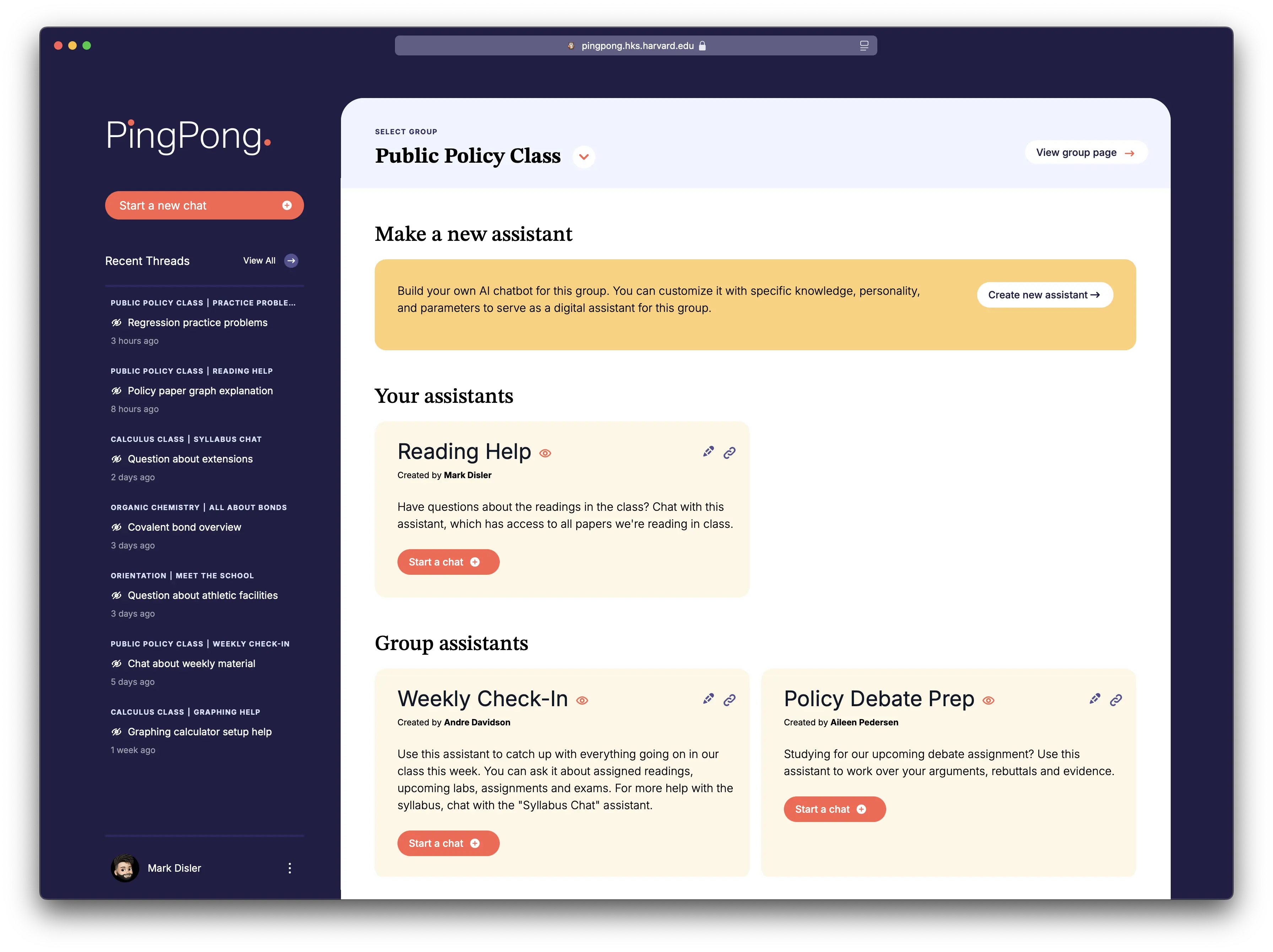

A software platform carefully designed for AI-driven learning.

PingPong is a tool for using large language models (LLMs) for teaching and learning. Instructors can use it to create and share custom bots for specific tasks, like serving as a virtual teaching assistant with access to course documents.
PingPong is built on top of GPT-4o, a large language model developed by OpenAI. There are several advantages of using PingPong over ChatGPT. First, PingPong is specifically designed to facilitate learning, meaning that it won’t simply provide students with answers. Second, moderators can view de-identified chats, which helps instructors understand how their students are using the tool and potentially tailor class content accordingly. Third, none of the information entered on PingPong will be used by OpenAI to train their models, ensuring user data is kept private.
Initial evaluations of PingPong’s use in Harvard courses indicate that 70% of students found it to be an effective support for achieving their learning goals. We are currently piloting PingPong in a nationwide experiment to evaluate the tool’s effect on learning outcomes in under-resourced colleges. This pilot is in early stages, but participant feedback showcases the tool’s promise. One faculty member said “…students’ positive reactions have been overwhelming, and I have observed a significant improvement in their final exam scores.”
Learn more at pingpong.hks.harvard.edu.